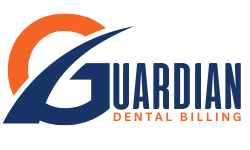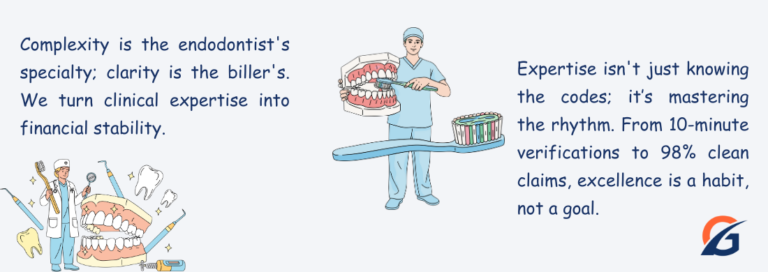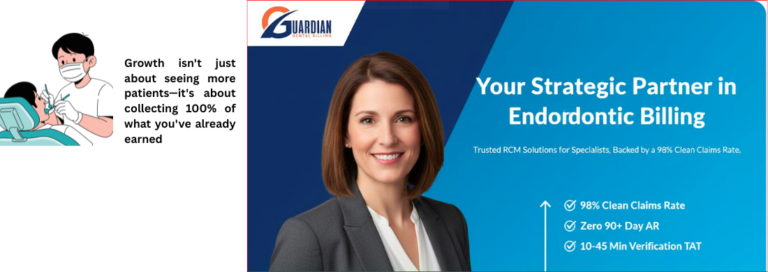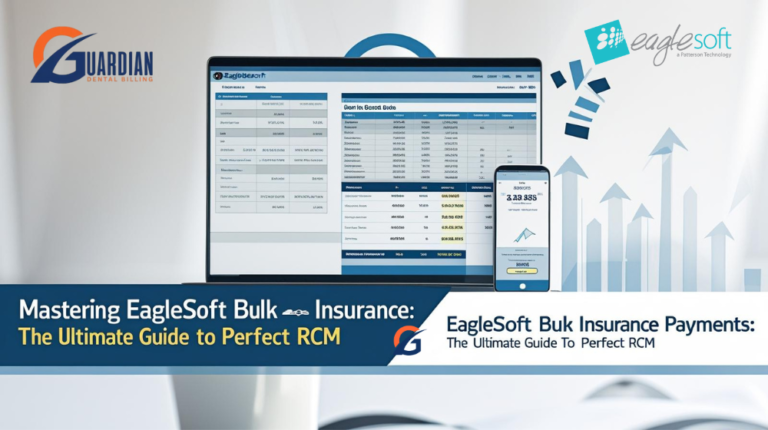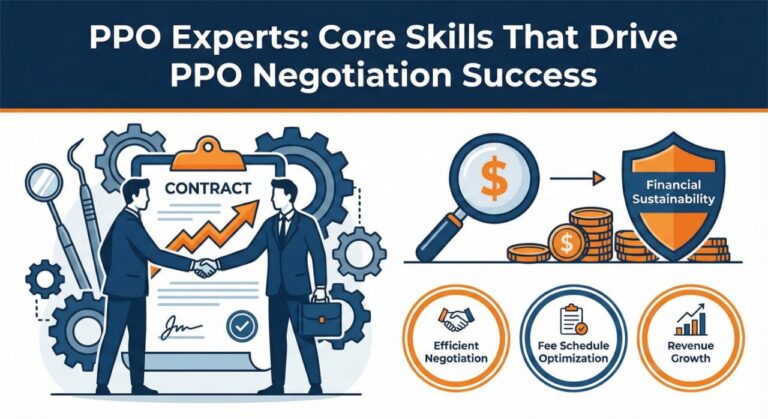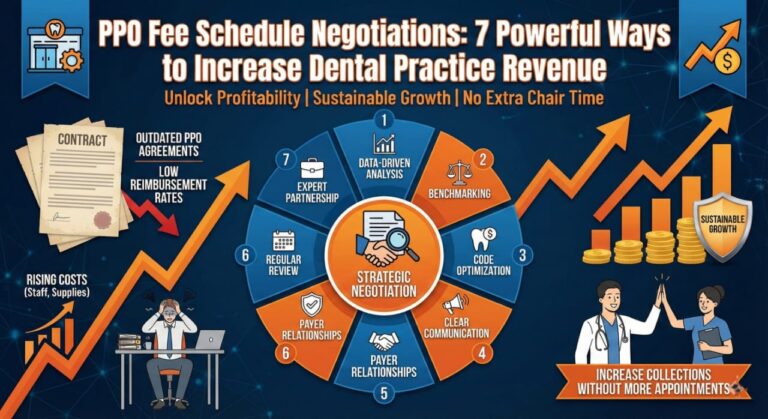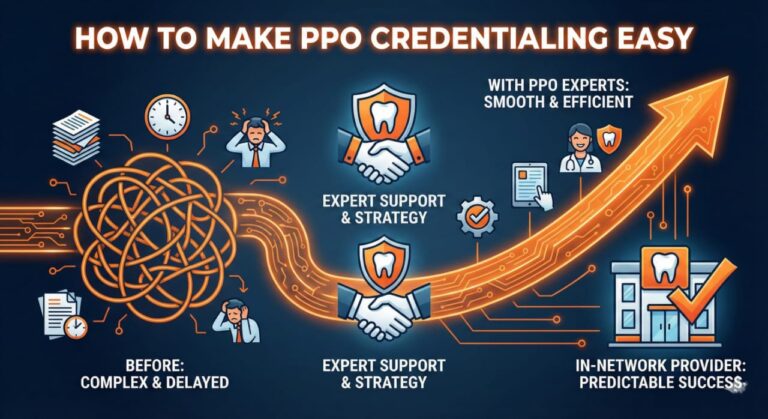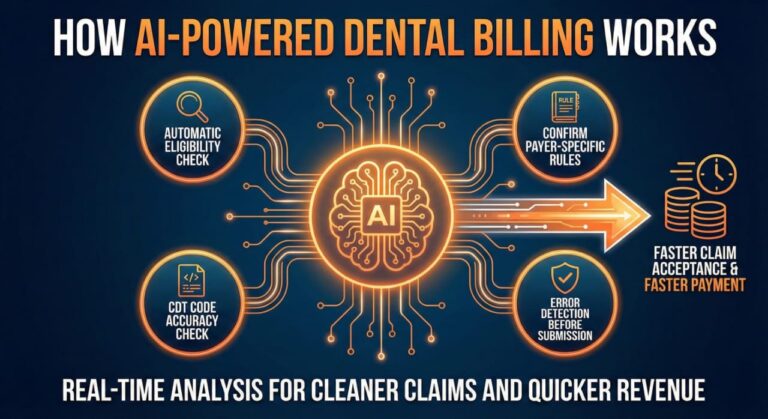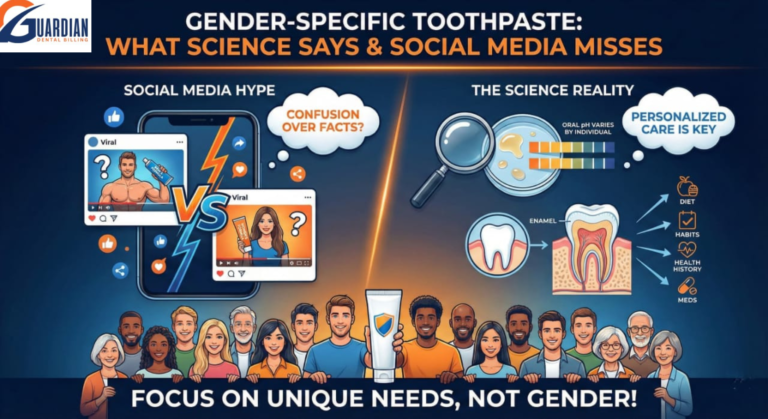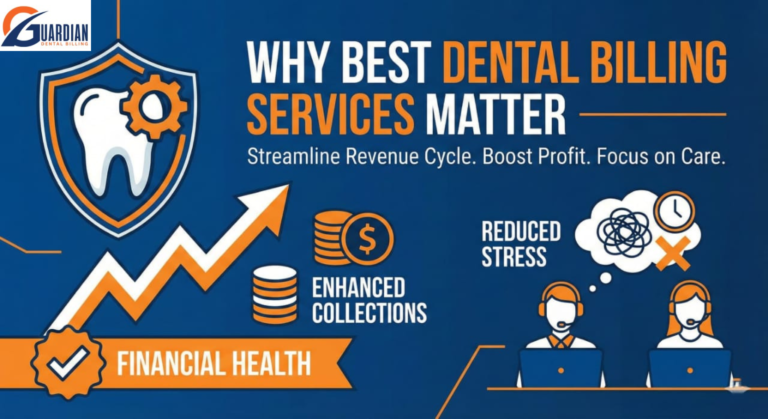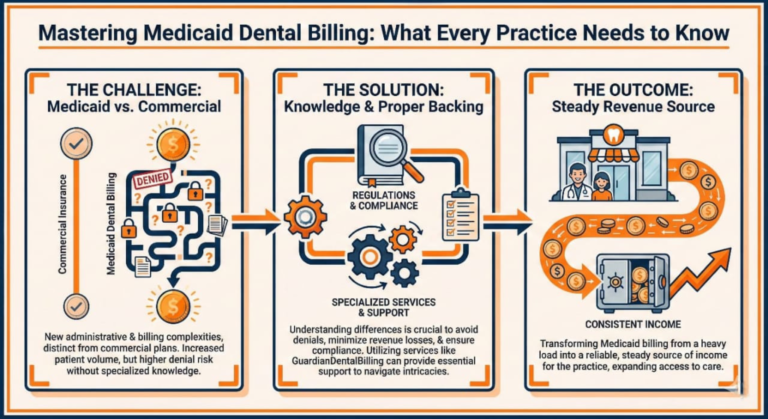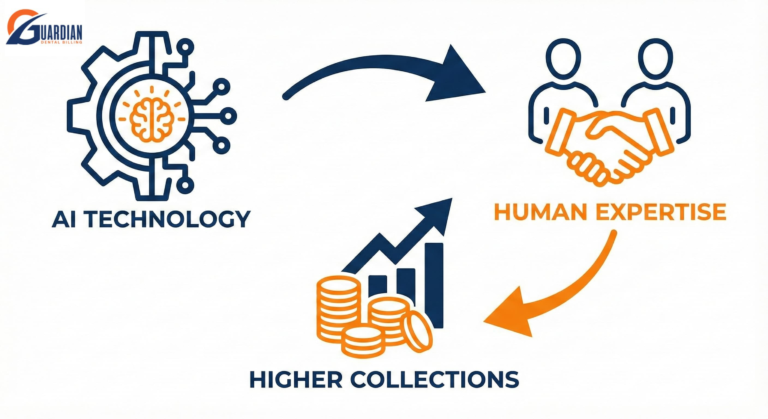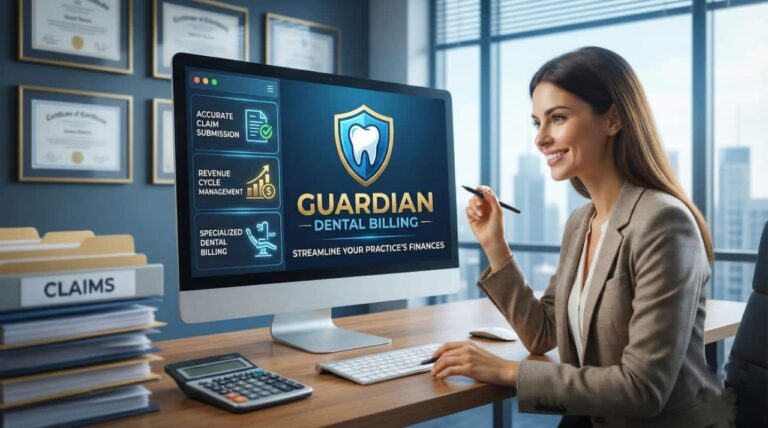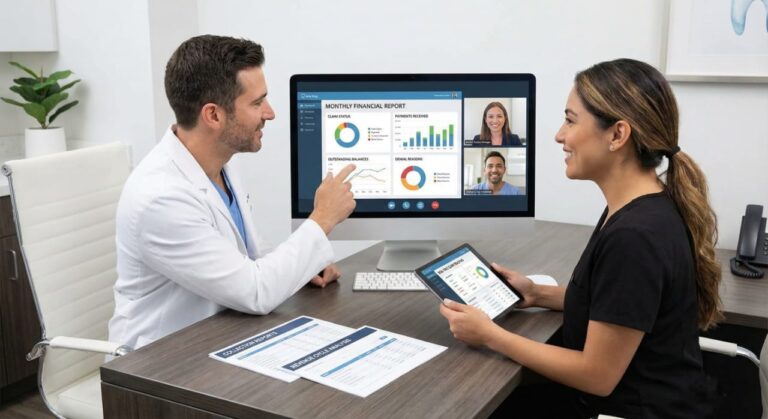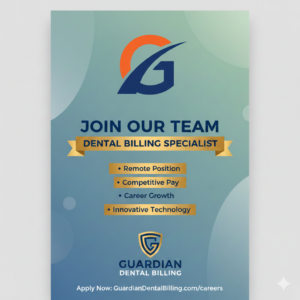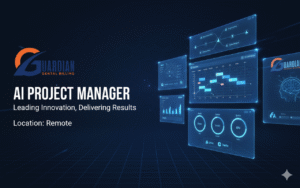Why Dental Billing Is More Relevant Than Ever
Remote dental billing jobs are fast becoming one of the most rapidly expanding home-based opportunities. Behind every dental procedure, from a simple cleaning to a root canal, is a series of events that will get the dentist paid. It’s called dental billing, and if it weren’t around, even the busiest practice would have severe cash flow issues.
With the rise of telecommuting in modern times, an increasing number of professionals are venturing into remote dental billing jobs and home-based careers as a convenient, rewarding, and well-paying profession. If you are interested in understanding how the business operates and how you can make it happen from home, then this guide is ideal for you.
What Is Dental Billing?
Dental billing involves submitting and following through on insurance claims and patient payments for dental procedures. It serves as the interface between clinical services and financial reimbursement.
Core Functions of Dental Billing
Insurance Verification
Prior to a procedure, the biller verifies:
• Patient eligibility
• Remaining maximums
• Deductibles
• Frequencies (e.g., how frequently cleanings are covered)
Accurate Coding (CDT Codes)
Right coding is the cornerstone of successful dental billing. Every dental service has to be coded with the right CDT code (Current Dental Terminology), standardized for payers to process claims accurately. Errors in coding may lead to delayed payments, denials, or even compliance problems. An experienced biller meticulously goes through the procedure notes, compares them to the proper CDT codes, and double-checks that all supporting documents comply with insurance demands. Proper coding not only ensures timely reimbursement but also enhances the practice’s overall financial stability.
Claim Submission
After the procedures are coded properly, claims need to be submitted to dental insurance providers. This can be performed electronically via clearinghouses or manually by filing paper claims. Electronic claim submission is ideal for efficiency and minimization of errors. A properly prepared claim incorporates the CDT codes, patient information, provider information, and any supporting documents required for verification. Follow-up on submitted claims guarantees that initial rejections or missing data will be corrected immediately, which helps ensure steady cash flow for the practice.
EOB Management
Explanation of Benefits (EOB) is an insurance company statement that lists what was paid, denied, or adjusted for every claim. Managing EOBs is essential. Every EOB is checked by dental billers to ensure that payments coincide with contracted rates and denials are correctly addressed. Underpayments, payment omissions, or denied claims are discrepancies that need to be unearthed and resolved at once. Proper EOB handling ensures correct management of revenue leakage and averts potential controversy with the patient or insurer.
AR & Claim Follow-Up
Accounts receivable (AR) management entails monitoring unpaid claims and following up on insurance companies or patients to clear outstanding amounts. Constant follow-up avoids aging claims, reduces write-offs, and keeps the practice with a healthy cash flow. An efficient dental biller keeps meticulous records, reminds them of pending claims, and talks with payers to clear up discrepancies or furnish more documentation. Timely AR management is essential for maximizing reimbursement and keeping the practice financially stable.
Did You Know?It is estimated that 8–12% of yearly revenue is lost by most dental offices as a result of incorrect billing or denied claims. Effective dental billing has an immediate impact on profitability.
How Dental Billing Is Different from Medical Billing

Similar but different.
| Area | Dental Billing | Medical Billing |
| Code System | CDT Codes | CPT & ICD-10 |
| Claim Format | ADA 2012 | CMS-1500 |
| Plan Rules | Age/frequency limits | Diagnosis-based |
| Coverage Focus | Preventive, Basic, Major | Diagnosis and treatment-driven |
Why It Takes Training to Switch from Medical to Dental Billing
Medical billers have to learn dental-specific:
• Code categories (e.g., D0120 for exams)
• Frequency limitations
• Coordination of dual insurances
• Payer-specific rules (e.g., Delta Dental vs. Guardian)
Skills Needed for Dental Billing Careers
Success in dental billing isn’t memorizing codes—it’s using them correctly under real-time pressure.
Essential Technical Skills
CDT Coding Proficiency
A skilled biller is able to quickly apply the correct codes out of thousands.
Practice Management Software Knowledge
Experience with:
• Dentrix
• Open Dental
• Eaglesoft
• Curve Dental
Claim Submission Tools
Ability to operate:
• NEA FastAttach
• DentalXChange
• Availity
Soft Skills That Set You Apart
- Strong written and verbal communication
• Attention to detail (particularly when verifying coverage)
• Ability to manage high-volume follow-ups
• Emotional resilience (particularly when dealing with claim denials)
The Increase of Remote Dental Billing Positions
As more and more dental offices outsource billing to virtual staff, remote dental billing jobs are becoming the new normal, not the exception.
Why Remote Dental Billing Is Thriving
Post-COVID Workflow Changes
Most offices went digital and never went back to paper billings.
Cloud-Based Platforms
With applications such as Dentrix Ascend and Open Dental Cloud, billers can work remotely.
Cost Savings for Offices
Outsourcing eliminates expenses for:
• Employee benefits
• Training time
• Office space
Who’s Employing Remote Billers?
- Single-location dental offices
• DSOs (Dental Service Organizations)
• Dental billing companies
• Virtual dental startups
• Insurance verification firms
Types of Remote Dental Billing Roles
Based on your area of interest and expertise, you can perform various remote roles.
Popular Remote Dental Billing Jobs
- Dental Biller – Responsible for coding, claim submitting, and EOB posting.
• Insurance Verifier – Confirms coverage prior to appointments and documents benefit breakdowns.
• AR Specialist – Processes unpaid claims and follows up on payers.
• Claims Analyst – Reviews denied claims and processes appeals or re-submission.
• Billing Team Lead – Oversees junior billers and ensures all claims are KPI compliant.
How to Begin a Remote Dental Billing Career

Whether you are a new graduate, dental assistant, or career changer, remote dental billing jobs are a learnable skill.
Step-by-Step Career Break In
Step 1: Obtain Basic Training
Search for low-cost or accredited training programs that teach:
• CDT code sets
• Insurance types (PPO, HMO, dual)
• Claim cycles and portals
• HIPAA compliance
Platforms to look into:
• AAPC
• Udemy
• Guardian Dental Billing Academy (if internal training is an option)
Step 2: Learn Billing Software
Download demos or view tutorials of:
• Open Dental
• Dentrix
• Eaglesoft
Step 3: Volunteer or Freelance
Provide billing services to local clinics, particularly for unpaid claims or verifications.
Step 4: Build Your Resume & Online Presence
Emphasize:
• Remote tools proficiency
• Soft skills
• Courses or certifications
Step 5: Apply on Specialized Job Boards
See:
• DentalPost
• Upwork (for freelance work)
• Indeed (filter: remote)
• Facebook Groups such as “Remote Dental Billers USA”
What Can You Earn in Remote Dental Billing?

Average Salary Ranges
| Role | Hourly Pay | Annual Equivalent |
| Entry-Level Biller | $16–$18/hr | $33,000–$38,000 |
| Experienced Biller | $22–$30/hr | $45,000–$60,000 |
| Freelance Contractor | $3,000+/mo per office | $60,000+ (multi-office) |
Factors That Impact Your Salary
- Number of years experienced
• Difficulty of tasks performed (e.g., appeals vs. simple posting)
• Type of practice (specialty offices tend to pay better)
• Whether or not you work for yourself or a company
Tools Every Remote Biller Should Master
Software Stack for a Successful Remote Setup
Practice Management Software
• Open Dental
• Dentrix
• Eaglesoft
Insurance Portals
• Availity
• Delta Dental Portal
• Aetna NaviNet
Clearinghouses
• ClaimConnect
• DentalXChange
Communication & Task Management
• Slack or Microsoft Teams
• Zoom for meetings
• Google Sheets or Trello for tracking claims
Legal Compliance: HIPAA in Remote Dental Billing
Dental billing involves handling Protected Health Information (PHI). HIPAA applies, even if you’re working from your bedroom.
How to Stay Compliant
- Use encrypted devices and software
• Avoid public Wi-Fi unless using a VPN
• Sign a Business Associate Agreement (BAA) with any dental office
• Store documents securely and delete when no longer needed
FAQs: Answering Common Questions About Dental Billing Careers
Can I work remotely as a dental biller without dental experience?
Yes. With proper training and software knowledge, many offices will hire based on skills, even if you haven’t worked chairside.
Is dental billing a good career for working moms or caregivers?
Absolutely. Many remote dental billing jobs offer flexible hours, and part-time billing contracts are common.
How do I know if a remote billing job is legit?
Steer clear of companies that require upfront payment or imprecise job descriptions. Always verify:
• BAA agreements
• Employer’s EIN or NPI
• Secure communication tools
Final Thoughts: Is Dental Billing Right for You?
Dental billing is not just data entry, it’s about making dental practices succeed and patients understand their care costs. If you’re interested in remote work with stability, flexibility, and career progression, remote dental billing jobs offer an industry worth exploring.
You don’t require a medical degree or previous experience, only proper training, precision, and a desire to learn. Freelance or part of a team, remote dental billing jobs provide you with the opportunity to create a fulfilling career from home.
Ready to Start Your Career?
Begin with online training, connect with actual employers, and download sample CDT cheat sheets.
Discover our Dental Billing Trainings and HIPAA Learning Academy today.
